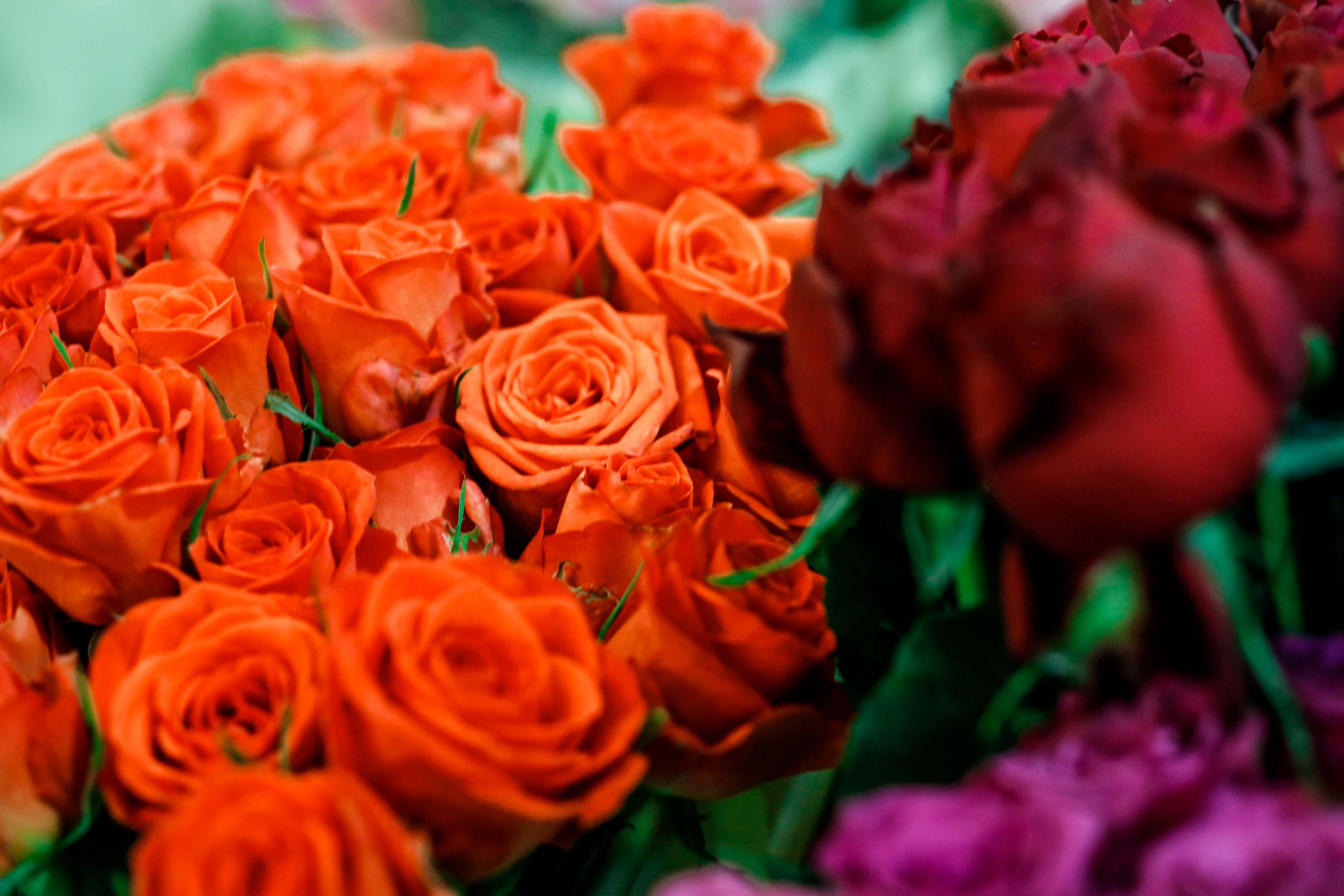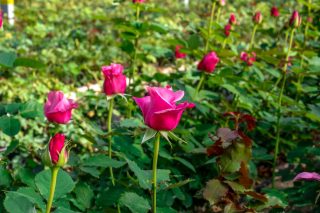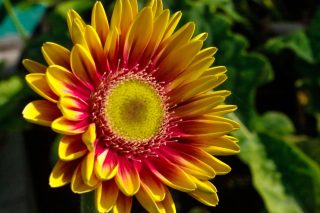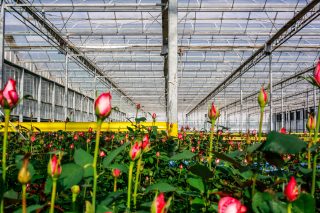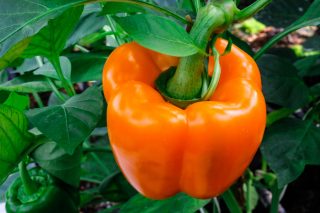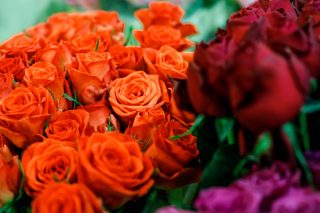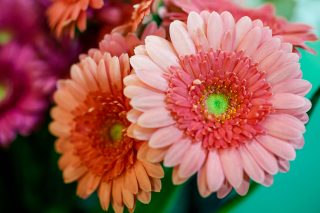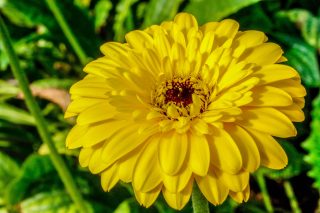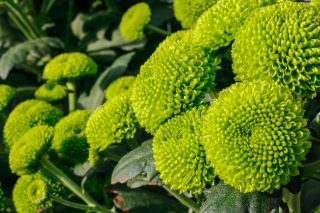All photos by Chantelle D’mello
Ahead of Qatar National Day, flower and vegetable production facility Roza Hassad has been holding open days this weekend.
The complex, which is located some 30km out of the city, was billed as the “first of its kind in the Middle East” flower facility when it opened in 2012. It is open to the public from 10am to 2pm today (Saturday).
A part of the Qatar-based international livestock and agriculture conglomerate Hassad Foods, Roza Hassad is one of a small but growing group of companies and individuals investing in local plants and produce.
The greenhouse, based near Al Shahaniya, spans 5,500sqms, and is split into 18 sections, each dedicated to a specific crop. On offer are different varieties of roses, colorful gerbera daisies, tropical anthuriums, and green chrysanthemums, along with peppers and eggplants.
Expansion
What initially began as an experiment appears to have now grown into a full-fledged business, supplying tens of thousands of fresh flowers daily to wholesalers and arrangements to hotels and businesses around the country.
Recently, the facility also opened its own floral store at the Al Meera in Al Hilal. Plans are underway to open similar bouquet and arrangement shops at five other Al Meera supermarkets in Al Gharafa, Al Shahaniya, Bin Omran, Onaiza, and Dahl Al Hammam.
Currently, 3,000sqm of the facility are devoted to growing roses, including a certain type of red-maroon rose named for Sheikha Moza.
They are cut in batches and stages, to ensure an almost continuous production from the end of October to the end of June every year. According to Vicky Damalou, the initiative’s commercial head, the greenhouse has the capacity to harvest at least 10,000 to 12,000 roses a day.

Other plants growing in abundance include anthuriums, a poisonous but highly decorative exotic plant with thick waxy petals in red, purple, green, white, and champagne.
Indigenous to the humid climates of central America, they are the only plant housed in the facility that freezes when temperatures drop, and require heaters to facilitate their growth during Qatar’s brief winters.
High tech
Among the other state-of-the-art technological features implemented at the fully automated facility are computer-controlled cooling systems with instantaneous feedback, an in house water recycling system, and an entirely soilless means of production.

Crops are planted in a certain type of volcanic material known as perlite, which is infused with the necessary minerals and fertilizers required for each type of plant, rendering the operation one of the first large-scale hydroponic production houses in Qatar.
Recently, the facility has also begun growing eggplants and bell peppers, though in smaller numbers than their floral counterparts.
Other initiatives
The greenhouse is one of many local initiatives Qatar is working on to beef up its food security.
Its parent company Hassad Foods is one of the Qatar National Food Security Program’s “task force” of organizations assigned to improving the country’s food supply and implementing an ambitious pledge to make the local food industry self-sufficient by 2024.
Currently, only 6 percent of local land is farmable, and around 90 percent of food consumed here is imported.

To lessen the dependence on outside sources, and to increase awareness of and interest in agriculture locally, the Ministry of Environment instituted annual seasonal markets in 2011, allowing private farms and poultry production facilities the opportunity to engage with customers face to face.
Three farmers’ markets – one at Al Mazrouah, another at Al Wakrah, and a third at Al Khor and Al Dhakira – reopened for the season earlier this month, selling locally grown crops at reduced prices.
So far, the initiatives have met with considerable public response. Last year, the Al Mazrouah market surpassed its initial sale of fresh vegetables, selling 1,156 more tons than it did in 2012.

As part of other governmental efforts, the Minister of Environment broke ground earlier this year on a new Aquatic Research Center in Ras Al Matbakh to help Qatar increase its fast-depleting surpluses of fish.
And earlier this week, Qatar announced plans to establish a new poultry farm in an effort to quadruple the amount of locally produced chicken.
The project, spearheaded by the Ministry of Economy and Commerce and the Ministry of Environment, is estimated to be 5.7sqkm in size, with the capacity to produce some 40,000 tons of chicken and 7.5 tons of eggs annually. So far, investors have already pledged around QR750 million to fund the project.
Elsewhere, residents too have taken up the mantle, instituting private production facilities of their own.
Last month, a trio of South-Indian housewives began growing rice paddy, string beans, gourds, lettuce, tapioca, radish, beetroot, pumpkin, bananas, and green peppers in a small portion of arable land at the Al Dosari Zoo and Game Reserve.
They are part of a larger group of some 600 Indian residents who constitute the local chapter of Adukkalathottam (kitchen garden), a Facebook group that encourages organic farming among Keralites all over the world.
Thoughts?

